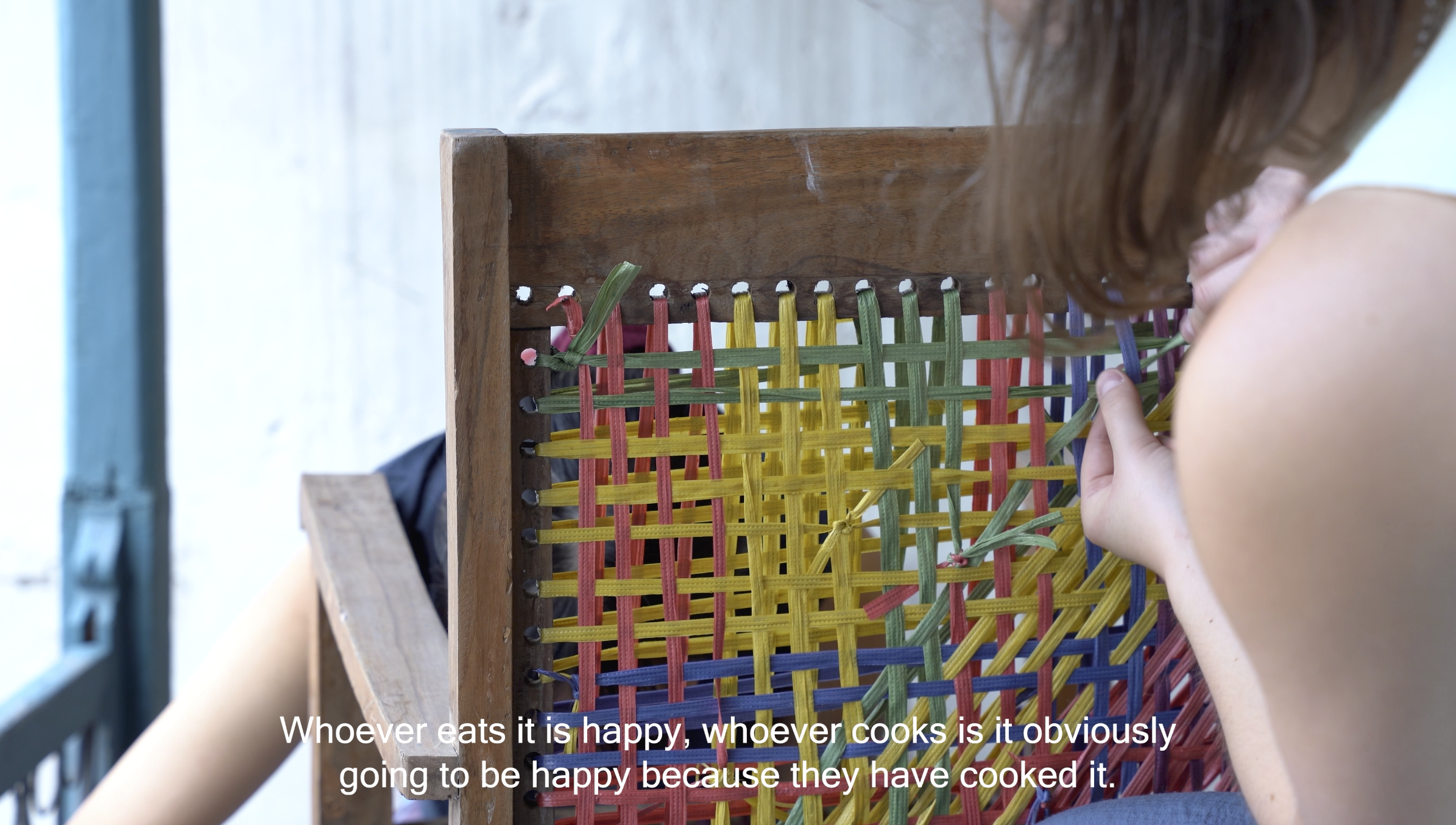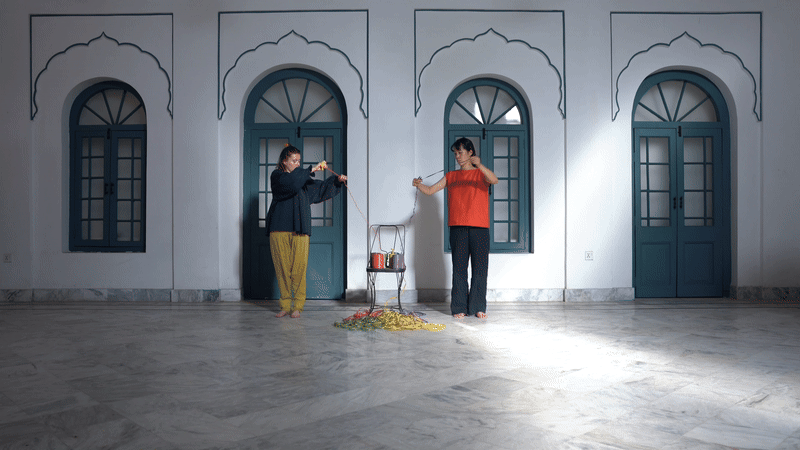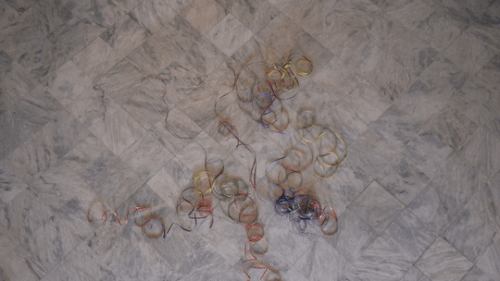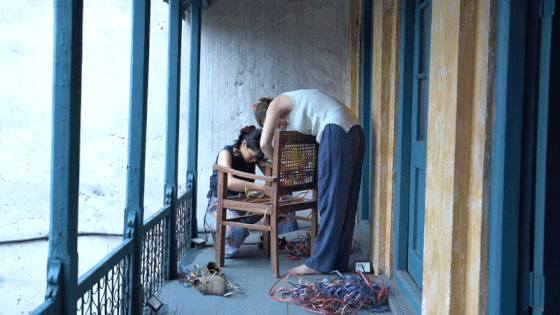 Still image of the film.
Still image of the film.discipline
Video
material
Video
dimension
18 mins
location
Lahore, Pakistan
year
2024
supported and sponsored by



A Seat On Circular Road
A collaboration with Anna Russell.
This film uses the repair of a found broken chair to explore manual labour in Pakistan, where traditional methods and manual skills remain integral to everyday life and industry. It examines the informal, inconsistent systems of measurement often employed in these settings — where a worker’s hand span or length from nose to arm can define a unit, resulting in inevitable variations.
Clip of the film.
The act of making is central to the project, with the process of measuring becoming a performance in itself. We measure a string using only our bodies — stretching it from one arm to another, from our feet to beyond our heads — evoking the improvisation inherent in manual labour, a common practice in desi1 measurement. The film unfolds in four acts: situating the chair frame on the roof where it was found, cutting the material based on our bodies measurements, weaving the chair, and culminating with our driver, Boota, seated on the finished woven chair, observing the bustling street life around him.
Boota, who drove us throughout Lahore, would patiently sit in his chair, waiting for us when we weren’t on the road. His presence symbolises time and stillness — two themes central to the film. Coming from London, we found Lahore to move at a slower pace. As we worked in the heat, our sense of time gradually shifted to accommodate this new rhythm.
Clip of the film.
The editing of the film follows the weaving process. You see us talking, threading, guiding the string through gaps, tying knots, weaving, counting threads, making mistakes, undoing, and trimming. We move around the chair — standing, sitting, and constantly adjusting our positions as we adapt to the motion of the process. The pacing alternates between slow and fast, reflecting the rhythm of the manual labour of weaving . Meanwhile, the audio unfolds its own narrative, running parallel to the visual acts, creating a layered story within the film.
Clip of the film.
As artists from London on a funded research trip to Lahore, we acknowledge that our weaving process exists in a different context, with different stakes, compared to those in Lahore who weave for their livelihood and are often vulnerable to exploitation.
The film was made at the Barkat Ali Islamia Hall in Lahore’s Old City, a site rich with cultural and historical resonance. Through this film we also seek to reveal the spaces within the building, to create a greater understanding of its form, tectonics, and interconnection to Circular Road. This project was produced during the Divvy Delfina Residency and supported by Foundation Art Divvy, Delfina Foundation, and the British Council.
WATCH FULL FILM HERE
1Desi meaning ‘of, from, or characteristic of India, Pakistan, or Bangladesh.’ The term ‘Desi’ is derived from the Sanskrit word ‘Desh’, which means ‘country’. Initially used to signify something ‘from the country’, its meaning has evolved to encompass people, cultures, and products from a specific region. For instance, we now commonly refer to desi food, desi calendars, and desi clothing.


Still images of the film.



